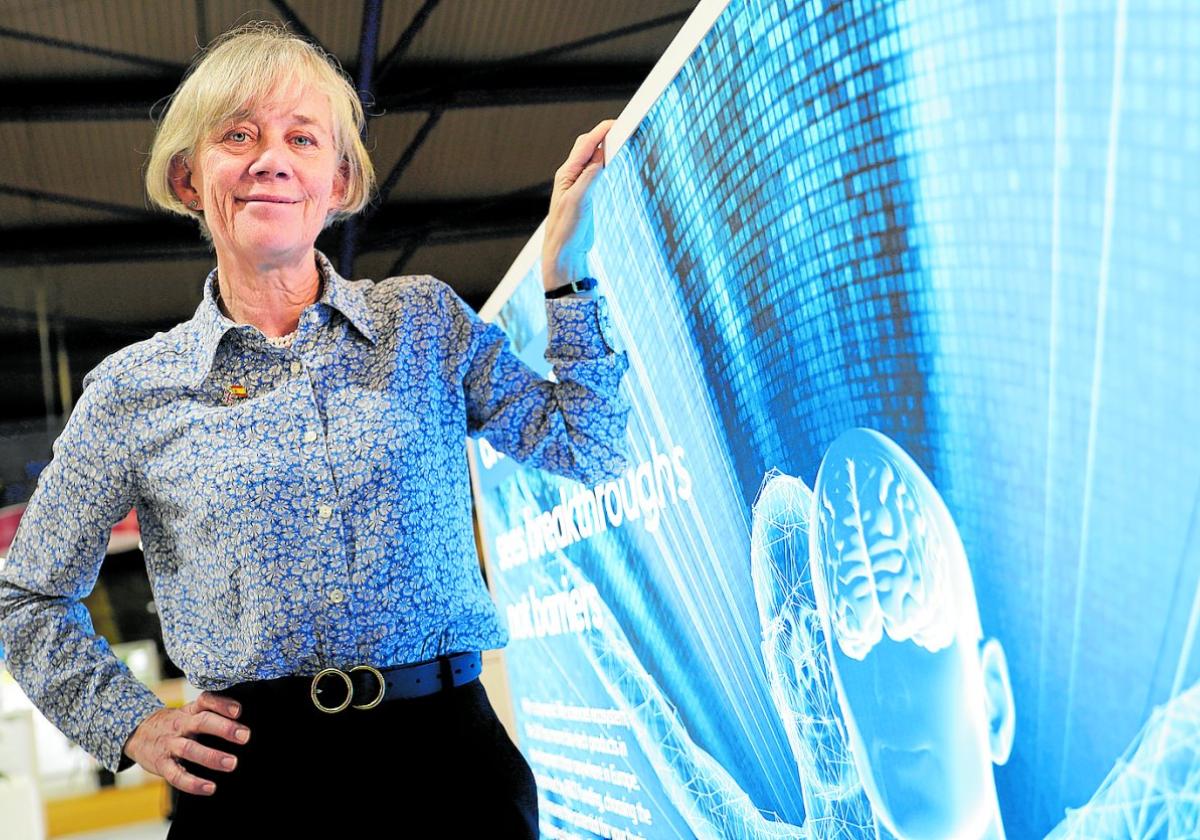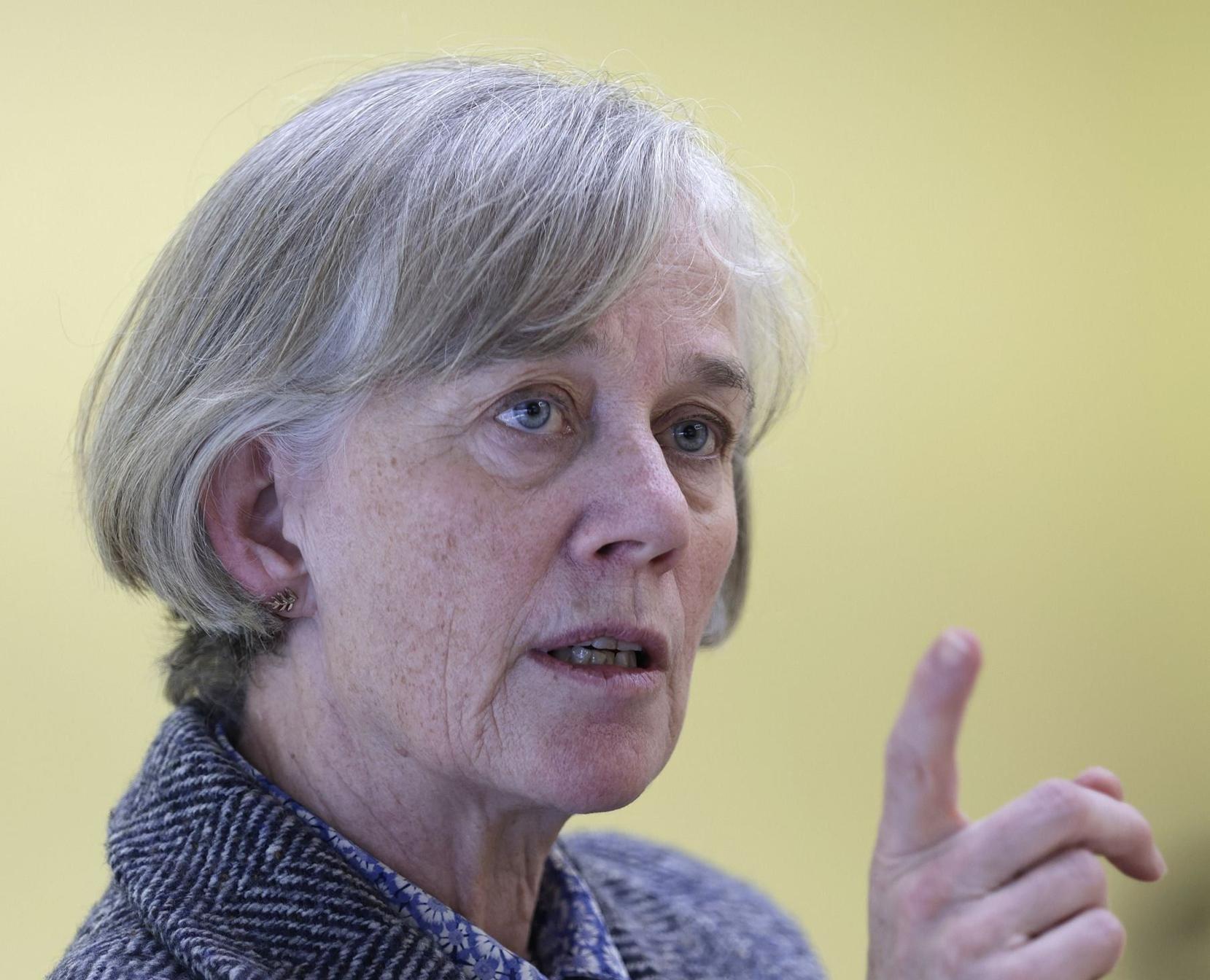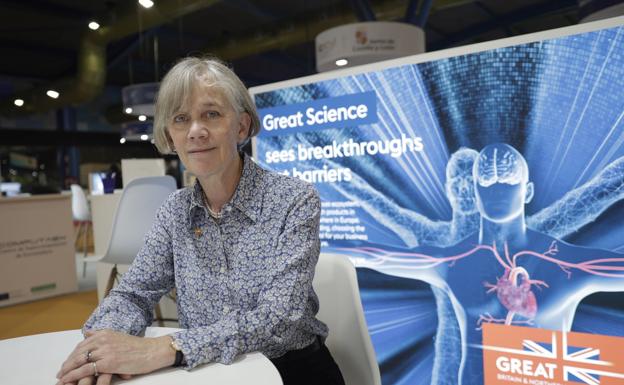

Sections
Highlight

Cristina Vallejo
MALAGA.
Friday, 21 March 2025, 12:33
The interview with Dame Angela McLean, chief scientific adviser to the British government since 2023, takes place at the Transfiere Forum that was held at the end of last week in Malaga, where the United Kingdom was the guest country. The institution she directs, whose mission is to ensure that the design of public policies has excellent science advice and that science is heard and understood as part of the decision-making process, is a pioneer in the world and has just turned sixty.
-Do governments listen to you?
-I would say 'yes, they listen to us'. And we have to accept that science advice is one part that goes into making a decision. We know that our advice is not the only consideration. So, sometimes what we advise is not what will happen.

-Might there be a clash between what you advise and what the people want, between science and democracy? Governments can make decisions based on your advice that do not have the support of the voters...
-Democracy comes first. Without question. And that is the role of politicians. My job is to gather science advice that I think is reliable and to offer it to a politician. It is the politician who is the elected representative. We are just advisers in the service of the democratic process.
–Have there been any disputes between your advice and government decision-making?
–-No, I don't have any examples since I've been in this position. And before... Covid, for us all, was a very fraught time. There were no good options. Every decision had bad outcomes. There were many times where science advice took a long time to act on, shall we say.
-Before you took up this post, you were chief adviser on defence issues - there are twenty advisory divisions for the government and now you are the head of all of them - but is defence the issue that the government consults you most about now?
-In the United Kingdom we have a whole strategic defence review that is indeed calling on science and technology advice. It has particular people appointed to that review to take account of the technology and the science angles which, of course, everybody knows are very, very important. The strategic defence review was one of the first things that our new government announced last summer. And it's, of course, partly motivated by the war in Ukraine, but not only.

-Is your mandate linked to the governing party?
-Mine is not a political appointment. When the government changes, my role doesn't change. The science that is true under one political party should be the same science that is true under another political party. But ideology is not a component in science.
-At Transfiere we have heard that science is in danger because of cutbacks, evidence denialists... What do you think?
-I would not use the term "endangered", I would say science is under threat from misinformation and disinformation. I do not think it is in long-term danger. This is much too powerful a way of understanding the real world to be destroyed by these forces. But I think the real issue is that these forces have new ways to spread through social media. And that has caused a new kind of problem that we need to learn how to counter. I feel up until now we have stayed out of it and I am not sure we can forever. So up until now we have tended to say we will make sure that the correct information is available to everybody in what we think of as the mainstream media, so if anybody wants to, they can go and find out. But I now am beginning to believe that is not enough. I don't know the answer but I do feel like we need to build stronger defences from this threat, by being more proactive. Maybe we should find some real influencers. Maybe there are some pop stars who would be science pop stars. We need advice from people whose life is much more connected with that kind of information than mine. I think we need to learn how to put strong science messages on social media in ways that they get heard.
-Can deniers be dangerous for the economy?
-How many people have died of measles in Europe? It's dangerous. There's a big measles epidemic happening in the US too. You have to keep vaccination rates very high, 95%, to keep it under control and vaccination rates have fallen. So both in North America and in Europe we have big measles outbreaks. This is very dangerous, not only for the economy, but directly for the people.
-Are we prepared for the next pandemic?
-We are working very hard to be prepared for the next pandemic. No matter how well prepared we are, it will be hard.
-And for climate change?
-I'm concerned about what we would call climate adaptation and climate resilience. There are two things. There's net zero, to make it not get too much worse. We know what we need to do. We're not doing enough of it, but we know what we need to do. And then there's adaptation; our roads, our railways, our embankments, all sorts of things were built for a climate that we don't have anymore and is not coming back. And I don't think we are doing that fast enough. For us in the UK, a big issue is flooding, but we have concerns about wildfires. And then, of course, we have a lot of infrastructure that is not built for heat. So we have many things we have to change. And in particular, we need to make sure everything we build new is built in a way that is adapted for a climate that we know is going to change. Even if we did everything absolutely right with net zero, the climate is changing. And there is much we can learn from other countries about those things, but also I think we have much to offer on an international stage. I'm very interested in the UK's expertise in climate prediction and weather prediction, but also in what we would call catastrophic risk analysis, basically, thinking about where there will be catastrophes and what will be lost. Because if you can figure out what would be lost, then you can make rational decisions about where you must invest to protect.
-We now have a government in the US that questions vaccines and climate change. Does it influence your work?
–It does not impinge on our work, no. And other than that, I wouldn't want to comment.
-How has Brexit affected science in the UK?
–We're tremendously delighted to be back in Horizon, the European funding scheme for scientific collaboration across Europe. The UK was out for a while and now we are back and we are very, very pleased because it is a fantastic scheme. So Brexit has ended for science in the UK. It's almost as if we had never left.
-You are the first woman in your position. Is it more difficult for a woman to be heard?
–Not in an absolute sense I would say. I still have experiences sometimes where I go to an event with a junior man and everybody only asks him questions. So I have to guard against that. And I don't think it happens because I'm an idiot; I think we live in a society that still thinks of scientists as men. So I do not feel it is a problem most days. There are some days where I feel I'm struggling to be heard. It's hard for a man. It's hard for a woman. It's hard to be a science adviser full stop.
-What can be done to improve the situation of women in science, so that there are more women scientists?
–Things are improving but there's still work to do. I think that one of the things to do is send out the message that science is for everybody, that scientists are not only white men, that all sorts of people become a scientist. That's the number one thing. Some of the stereotypes about what is a scientist are very damaging, it's not just a man in a white coat. I want there to be the understanding out there that there's so much we still need to do, and that with a science training there are so many different kinds of things you can do. You're not necessarily going to be, well, actually quite unlikely to be working in a laboratory. All the advisory work, all the decision-making, all the protecting the environment, how we care for the elderly... All of that, I think, is open to science. We have to make it very clear to children that there's still so much interesting work to do.
Publicidad
Publicidad
Publicidad
Publicidad
Esta funcionalidad es exclusiva para registrados.
Reporta un error en esta noticia

Debido a un error no hemos podido dar de alta tu suscripción.
Por favor, ponte en contacto con Atención al Cliente.

¡Bienvenido a SURINENGLISH!

Tu suscripción con Google se ha realizado correctamente, pero ya tenías otra suscripción activa en SURINENGLISH.
Déjanos tus datos y nos pondremos en contacto contigo para analizar tu caso

¡Tu suscripción con Google se ha realizado correctamente!
La compra se ha asociado al siguiente email
Comentar es una ventaja exclusiva para registrados
¿Ya eres registrado?
Inicia sesiónNecesitas ser suscriptor para poder votar.